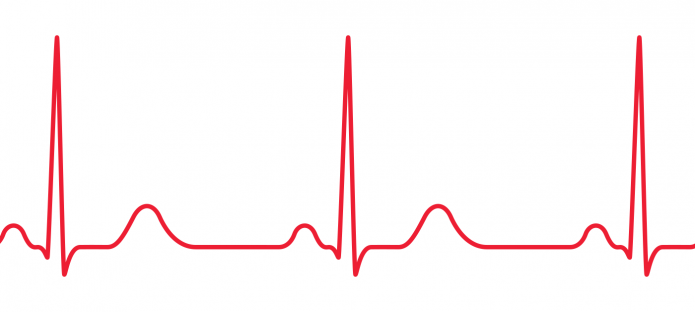Leeds Children’s hospital successfully ran their 9th Advanced Resuscitation of the Newborn Infant (ARNI) course in June 2020. Many course candidates had been booked for over a year. Not wanting to let them down, the hospital successfully identified a way to run a safe, socially distanced course and ensure that professionals could continue to access vital training despite the ongoing COVID-19 pandemic.
This case study describes how the hospital considered whether running a course would be viable and how they modified their approach.
Preparation
If a course was going to run it was important to establish whether candidates would still attend, whether they could secure faculty and to get the Trust’s support.
The hospital started canvassing candidates and faculty in April to check if they were still keen to come. This canvassing identified that while some candidates wanted to withdraw it was still possible to fill most of the spaces and local faculty were available and willing to teach.
Resuscitation Council UK’s guide to running courses during COVID-19, which emphasises that important training should still continue face to face, proved reassuring and helpful.
It was important to get support from the Trust’s management and emergency planning teams that they were comfortable with face to face training taking place. The management team were delighted that the course centre was trying to re-establish some normality and the emergency planning team helped sort PPE provision for the course. They discussed ARNI as part of the wider provision of resuscitation training across the Trust. This led to all face to face resuscitation training getting approval to restart and 1,000 masks per week being allocated for training purposes.
Catering was arranged through the usual supplier, with individual lunch bags provided.
It was important to risk assess the education centre. The changing rules around social distancing and mask wearing meant this assessment took place quite late on once planning was well underway. The wonderfully large education space meant the organisers could meet all the requests about candidate numbers in rooms, space for teaching, closure of the communal kitchen, use of lifts and access to the centre being staggered. The education centre team provided hand gel and detergent wipes for each room to help with hygiene compliance.
Candidates and equipment
The course organisers split the candidates into course groups in the usual way. They allocated each of the candidate groups to a ‘home room’ where they had their mentor meetings and refreshment breaks, minimising mixing with the rest of the candidate groups. While this separation enabled the training to go ahead safely, it did impact on candidates’ ability to network.
Each candidate group was allocated a resuscitation trolley to minimise the potential for cross contamination. This worked out extremely well as it meant that the candidates took responsibility for their equipment and also got familiar with where everything was in the trolley making the scenarios on day two even slicker.
Faculty
The faculty was predominantly from Yorkshire, although one or two others joined from further afield. The local hotel accommodated candidates who needed it.
Faculty wore masks during the socially distanced faculty meetings.
Reducing paper usage was an important element of the Trust’s COVID-19 response. So, the faculty needed to move away from using paper feedback forms for candidates and transcribing them into a computer spreadsheet afterwards. IT was set up in each teaching room and the faculty room, with the mark sheet housed on a collaborative cloud-based drive. This allowed faculty to input feedback in real time and from each room concurrently. A strength of the ARNI course is that it generates significant amounts of in depth feedback on each candidate and this quality of feedback was maintained despite the streamlined system. The faculty electronically scanned results sheets and Instructor Candidate paperwork and emailed these directly to Resuscitation Council UK.
Faculty were still able to network in the evening from their own hotel rooms through a zoom takeaway dinner and faculty who were at home joined too.
Programme
The ARNI programme is run over two days and is a mixture of lectures, skill stations and scenario demonstrations and teaching.
The faculty discussed whether one group of faculty could stay with one group of candidates and thus completely remove the risk of social mixing. But it was felt this would be less educationally valuable and both impossible and exhausting to deliver.
Instead, steps were taken to minimise faculty mixing by keeping groups of faculty together but moving the Instructor Candidates (IC) a bit so they got exposure to different teaching styles. This helped ensure that candidates and ICs didn’t miss out on the full educational benefit of the course as a result of restrictions.
A number of alterations were made during the course while some things stayed the same:
- An extra slide was added into the course introduction regarding social distancing and PPE.
- Social distancing signs were put up throughout the education centre.
- Lectures were delivered to one big group with candidates wearing masks. The lecturer didn’t wear a mask to ensure clear delivery of the dialogue but taught from a safe distance.
- Demonstration scenarios were set up in two separate rooms but aimed to run along identical lines, with half the candidate group in each room. The scenario leads agreed on the key debrief messages beforehand to try and help ensure consistency.
- The communication stations and the first morning’s airway stations ran as usual.
- The teaching scenarios ran as usual but with each group taking their equipment from room to room.
- There was a chest drain station as usual for practical skills training as the medical meat supplier was willing to support the course.
- All manikins stayed put but were cleaned down with detergent wipes between groups
- Although the candidates could not socially distance during the scenarios the use of masks heightened everyone’s focus on communication. The wearing of masks highlighted the human factor challenges of working the way we do currently where so much non-verbal communication is lost.
- The debriefs were led socially distanced and without masks. The organisers felt this was safe to do, ensured the comfort of candidates and enabled the candidates to who could then focus on the debrief (rather than the heat of being in a mask) and enabling contribution to discussions.
Hannah Shore, Consultant Neonatologist and Director of the ARNI course in Leeds said:
“The course was a great success with fantastic feedback from candidates and faculty. Although all this took a lot of planning, preparation and complexity we would not hesitate to run it like this the next time if needed and would actively encourage other course directors /organisers to do so. We felt it was really important to continue delivering vital training despite the pandemic and we are very glad we did.”
RCUK are here to support you in running courses during COVID-19; click here to find out how.

